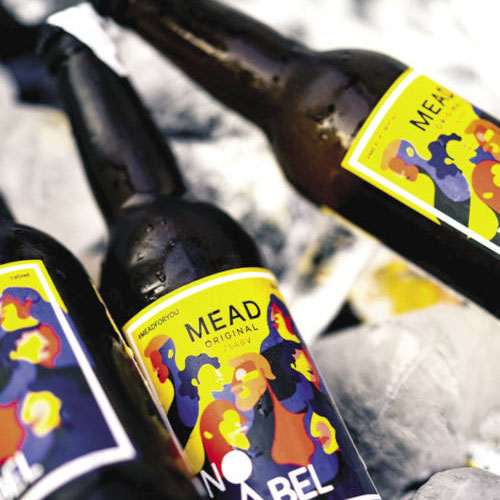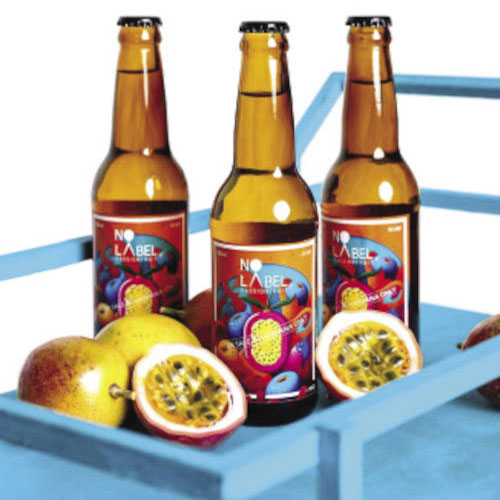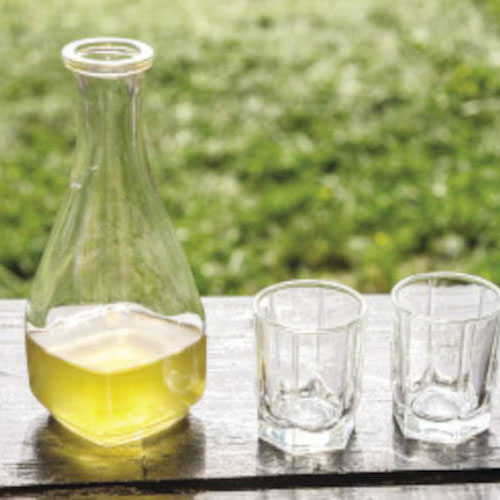Want to try the ‘nectar of the gods’? The one transmitted by bees? One that is possibly the ancestor of all alcoholic beverages? Once widely prevalent, mead is making a global resurgence, and unsurprisingly, Indian entrepreneurs have staked their claim as well. Anant Gupta and Vinayak Malhotra are co-founders of Delhi-based No Label, which they describe as ‘craft alcoholic beverage made from both traditional and non-traditional ingredients’. In a market that has been dominated by dark spirits and beer, we are defying the norms to create something led by flavour with No Label, says Gupta. As for what led them to mead, he says, “Vinayak and I entered the alco-bev industry because of our love for the space coupled with a lot of introspection during the first lockdown. When we started exploring possible ways to enter the industry, mead came by as a great option due to the lower costs of entry, combined with its versatility.” They point out that, after the Covid-19, consumers have become slightly more liberal in spending on leisure and lifestyle, at the same time being consciously driven towards better healthcare. The journey For Gupta and Malhotra, the initial journey had its challenges. “Our journey started with a 2,500 km drive from Delhi to Nashik and back during the first (Covid) lockdown, to scout for wineries and understand the production landscape of the country. We then moved on to produce our first batch in my room (which did not taste good at all). After about six months of in-house recipe development, experiments with 30+ honey types, 60+ recipe combinations and 100+ trial batches, we started our commercial production in July 2021 and launched in November 2021.” The founders say developing the recipe for No Label Original Mead was a long learning curve. “It took us a while to understand how fermentation works,” they say. “While coming up with the recipe for No Label Original, the goal was to create a light and refreshing drink that would work well as a counter to the soaring heat. A carbonated mead is light on the palate as well as on the body, which makes for an easy drinking experience. The focus was to create a citrus-flavoured drink suitable for summers.” The production process of mead is very similar to wine, with the exception of the crushing and pressing process. Youth TG The global mead market is projected to grow from $487.9 million in 2021 to $1,621.0 million in 2028 at a CAGR of 18.71 per cent (Fortune Business Insights), with Europe leading in both production and consumption. The category’s appearance in India is just a few years old, with India’s first branded mead Moonshine Meadery starting only in 2018. Some other leading players in the industry are Cerana, Portside, Arka and Stump, among others. To stand out within the category, No Label offers a light and crisp drink with an uncomplicated flavour profile for the younger audience, the millennials and GenZ, chorus the founders. “Younger consumers joining the drinking age group are experimental and are moving away from bitter tasting alcohol to drinks that are more flavourful and easier to drink,” says Malhotra. “Mead offers the new age drinkers a smooth transition from carbonated non-alcoholic drinks to alcoholic ones and hence shall become the choice of drink for the age group.”
-

Gupta and Malhotra: There is immense scope for growth




































